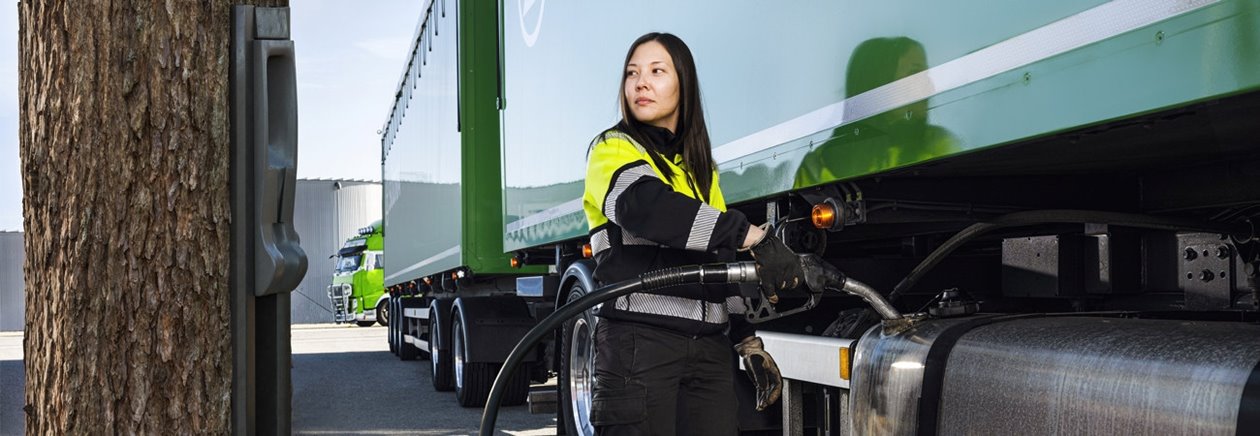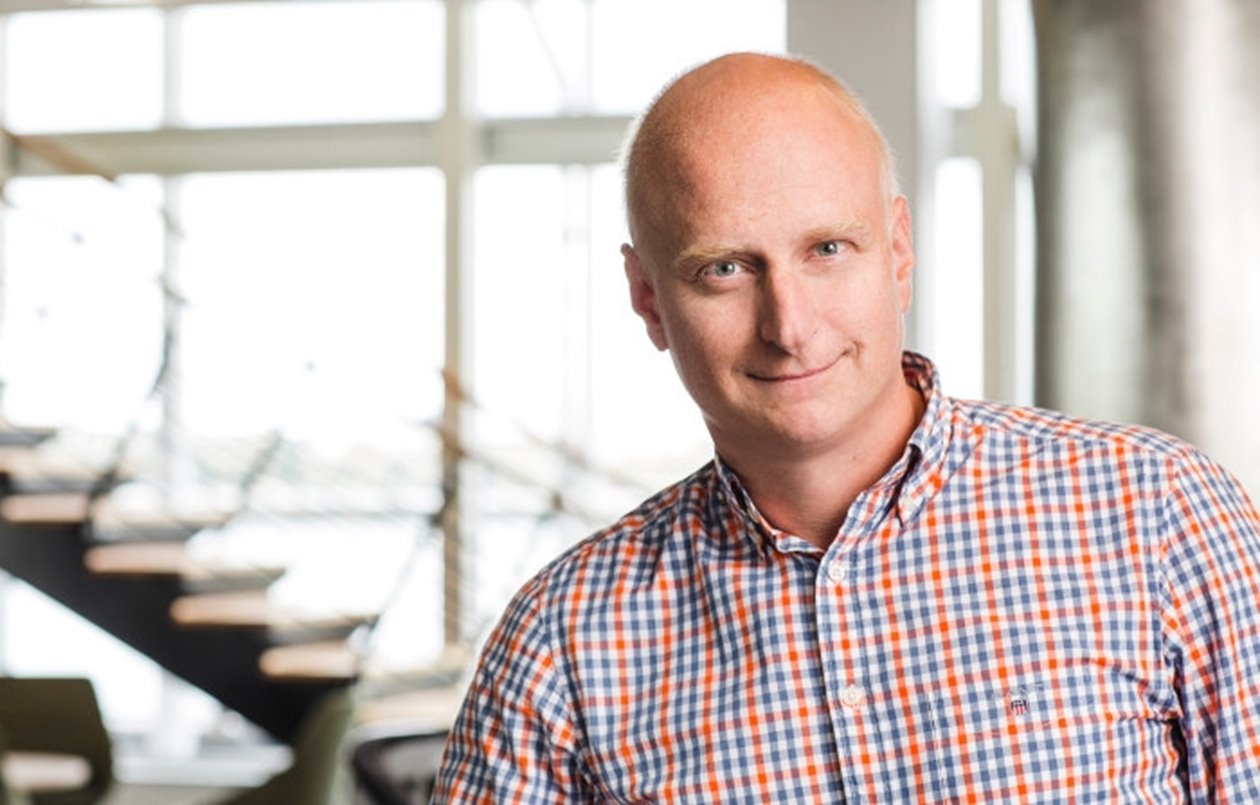On track for fossil-free transport

The Södra Group is committed to being 100% free of fossil fuels for transportation across all operations by 2030.
“When we announced this target back in 2016, we were using around 85,000 m3 of fossil fuels in our transport system, at which point we had already committed to being fossil-free for production by 2020,” explains Program Manager Henrik Brodin. “We now hit that production target on a day-to-day basis and our main source of greenhouse emissions is now transport. In 2019, we were 99.5 percent fossil-free for production processes and 94 percent fossil-free overall*.”

The emphasis towards 2030 is now on working with external partners in the logistics chain. It requires both technical innovation and partnerships. “The good news is that “2030 is more realistic every day. The biggest landmark on the supply side is Södra’s own initiative - the world’s first commercial biomethanol plant at Mönsterås pulp mill”, says Brodin.
Shipping is still the biggest hurdle. The replacement cycle for ships is so much longer than for trucks that retrofit is the most practical option for all but the longest time frames. But there needs to be an incentive. The absence of a carbon tax means shipping firms have not been motivated to switch from fossil-based HFO. The mood is changing, however. The Fastwater project is one of several initiatives aimed at achieving the Paris and IMO targets of a 50 percent reduction in CO2 from maritime transport by 2050.
Fastwater and the EU’s Green Deal are piling on the pressure and Brodin believes shipping companies are taking note. Covid-19 has also been an accelerating factor. “It might hurry the demise of (fossil-based) oil,” he says. “When economies ramp up again, they may not return to former levels of fossil-fuel use. We can produce any type of fuel from non-fossil sources, it’s just a question of where we spend the money. We are open to all solutions and many will be needed.”
While working with the entire supply chain, we continue to de-carbonize internal logistics through the substitution and minimization of fossil-fuel wherever possible and we are working on several fronts such as moving more volumes by rail and using electric forklifts. Our own green electricity flows to more than 100 charging points so that employees can drive electric vehicles to work.
As for trucks, we offer renewable choices (HVO) at our on-site filling stations. We’re also involved in pioneering work to build the world’s first large-scale advanced biodiesel production facility based on solid biomass through the Silva Green Fuel joint venture. This would be in addition to the current use of tall oil, a product obtained from the pulp mills, as a source of biodiesel, which already produces a healthy surplus over the company’s own needs. One day it might even be feasible to transport paper pulp with fuels made from Södra’s own biogenic carbon dioxide generated from its three pulp mills.
“We’re also working with customers, suppliers and authorities in an effort to move more goods by rail but the key is that all forms of transportation are powered by renewable energy,” Brodin says.
“If we are to succeed in transitioning our transportation system, we must stimulate demand for sustainable transportation. Our role is split between the supply side and demand side, as producers and consumers of renewable energy. We take our responsibility for both very seriously.”
* = Forestry operations, transport and Södra’s own production processes. Externally-sourced chemicals are excluded.
Show all content for topic
Subjects: Pulp
